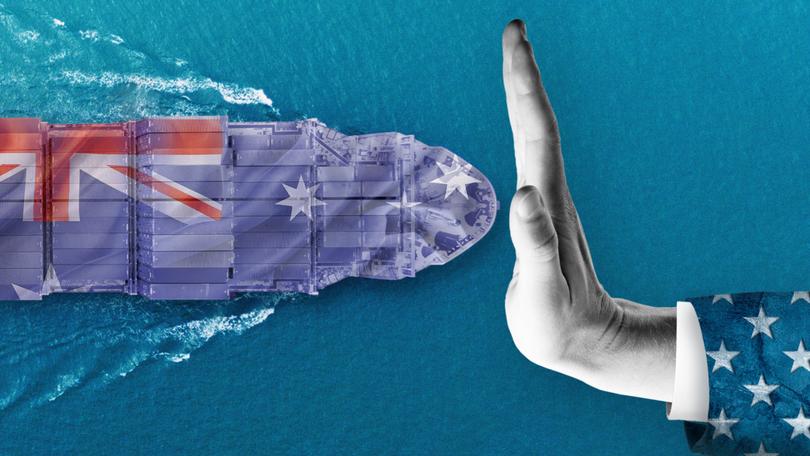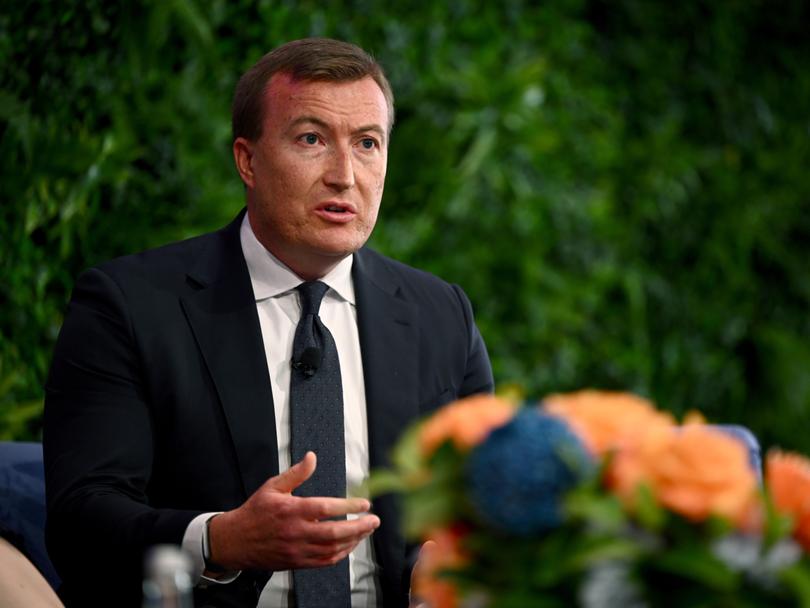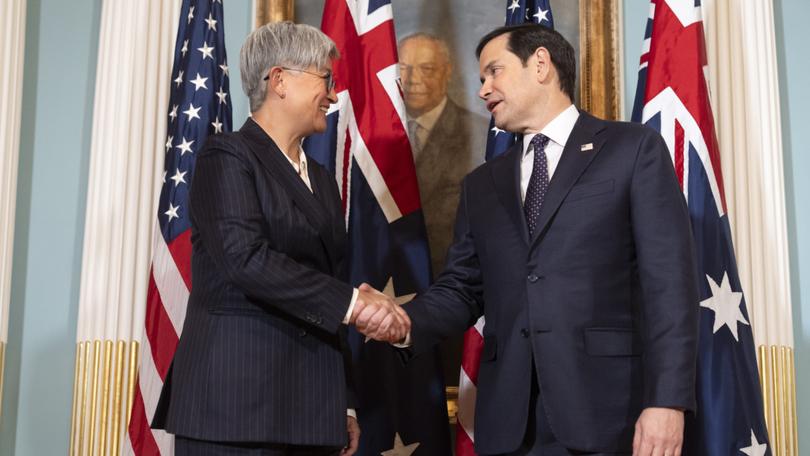Trump tariffs: Business Council of Australia chief executive Bran Black, warns we can’t be complacent
One of Australia’s leading business figures says Australia cannot afford to assume Donald Trump won’t also target Australia with taxes on exports to the United States.

One of Australia’s leading business figures says Australia cannot afford to assume Donald Trump won’t also target Australia with taxes on exports to the United States.
Prime Minister Anthony Albanese has not phoned President Trump since the inauguration. He spoke to him after his election and stressed Australia’s trade surplus with the US.
Bran Black, chief executive of the Business Council of Australia said while there was no reason or indication that the US President was preparing to hit Australia with the kinds of tariffs imposed on China, Canada and Mexico, there was no room for complacency.
Sign up to The Nightly's newsletters.
Get the first look at the digital newspaper, curated daily stories and breaking headlines delivered to your inbox.
By continuing you agree to our Terms and Privacy Policy.“I’ve spent some time in Washington in the last couple of months, just before Christmas I was there and I had the opportunity to speak to with business groups and Republican officials and so forth,” he said.
“And what was clear was no country can afford to make any assumptions with respect to what the new Administration will do or won’t do.
“But there was a reasonable degree of confidence that tariffs won’t be applied to Australia.
“Nobody can make any assumptions but in those circumstances I think its useful to see we are already taking positive steps.”

Mr Black cited Australia’s defence spending commitment of more than 2 per cent of GDP, the long-standing friendship between the two countries and the fact that Australia buys more from the US than it sells.
Mr Trump has described tariffs as “the most beautiful word in the dictionary” and believes trade deficits are proof of partners ripping off the US.
During his first Presidency, former Prime Minister Malcolm Turnbull had to personally lobby his US counterpart to avoid Australian steel being whacked with import duties.
At that time, Australia also had a trade deficit with the US.
Mr Turnbull has said that leader-to-leader dialogue is the only way to deal with Mr Trump’s bullying tactics.
Former South Australian Premier Steven Marshall, who is now President of the American Australian Association, said power was even more centralised in the Oval Office in Mr Trump’s second Presidency compared to his first.
“This is a very different administration that we’ve seen before,” he said in an interview with The Nightly from New York.
“It’s an executive presidency and government.
“And there’s no doubt that President Trump is the dealmaker and it’s one of the reasons why Australia needs to be spending time in the US to get the best possible deal.”
The federal opposition’s new foreign spokesman David Coleman declined to comment.
Asked if Mr Albanese should be stepping his engagement, Mr Black said: “The engagement so far has been appropriate.”
On Tuesday Israel’s Prime Minister Benjamin Netanyahu became the first foreign leader to visit Mr Trump in the White House since the inauguration.
Prime Minister Anthony Albanese will not meet the US President before the election, due before May.
The first leader-to-leader encounter is expected to take place at the Quad leader’s summit in Delhi later in the year.

This week, Defence Minister Richard Marles will travel to the US, following in the footsteps of Foreign Minister Penny Wong who, as part of the Quad grouping, was invited to attend the inauguration and meet Secretary of State Marco Rubio along with the foreign ministers of Japan and India for his first meeting in the job.
President Trump retreated from his threat to impose 25 per cent tariffs on Canada, which like Australia is a fellow Five Eyes intelligence-sharing partner, in return for better controls over the flow of the synthetic opioid fentanyl and migrants across the border.
He also backed away from imposing the same level of duties on Mexico but went through with the 10 per cent tariffs on China, Australia’s largest trading partner.
China retaliated with tariffs of between 10 and 15 per cent on a limited range of US goods including coal and gas as well as increased export controls on rare earths, which Mr Trump shrugged off.
“I’m in no rush,” he told reporters when asked when he planned to speak to his Chinese counterpart Xi Jinping.
Mexico and Canada secured a one-month reprieve from facing higher export costs to the US in return for measures at their borders, showing that the tariffs are being used as a negotiating tactic to secure domestic policy outcomes.
Trade Minister Don Farrell is waiting for Mr Trump’s Trade Secretary to be confirmed to start official contact with his counterpart.
Senator Farrell will stress that Australia has doubled its purchase of US goods since Mr Trump was last in the White House, as he lobbies to keep Australia out of the tariff crosshairs.
With one in four jobs in Australia dependent on trade, the BCA said the US tariffs on China could lead to a reduction in Chinese demand for Australian commodities which could lead to job cuts.
The BCA will host an event with Treasurer Jim Chalmers in Canberra on Wednesday for business CEOs.

